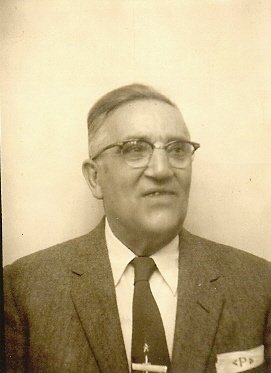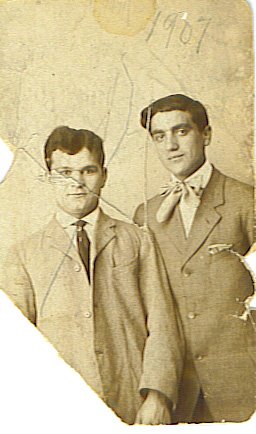An Immigrant's Granddaughter: Honoring My Ancestry
On September 17, 1887, my paternal grandfather, Emanuele Concetto Puglisi, was born in Linguaglossa, Sicily. His life story is rather remarkable and serves as a reminder given the context of what is happening currently in this country.
Emanuel was the last born to his parents, Rosario and Antonina who had 13 children. In fact he was the second Emanuele in his family; an older brother also named Emanuele died in infancy. Life in a Sicilian town could not have been ideal in the early 1900s, but my Grandfather was educated to read and to write.
The history of Sicily during that time speaks to a place experiencing poverty. There were few opportunities and much upheaval. Sicily had recently been absorbed by Italy and while this was at the time thought to be a good thing, that turned out not to be the case.
And so, in 1905 Emanuel (name spelling changed at Ellis Island) came to the United States. He arrived at Ellis Island, as many immigrants in the early 1900s did, on a boat called Massilia, landing in New York in May 1905. He was not the first of his family to come to the United States seeking a new life. In his own words, Grandpa Manuel "landed in Harrisburg, Pennsylvania" and was met by his brother Salvatore. He had about $17, approximately $608 in today's money.
Eventually, my Grandfather found work in the Hudson Valley of New York, digging New York City's aqueduct system. He eventually became a storekeeper and then a chauffeur for the managers on the project. It was his interest in automobiles that eventually translated to a lifelong career in mechanics and cars. He owned a garage on Rhode Island Street in Buffalo and sold automobiles; when he was old enough, my Dad taught customers how to drive those cars.
The story of how Grandpa Manuel met my Grandmother, a second generation daughter from a Dutch-German family living in High Falls, New York, is lost; my Grandmother died in 1927 after a long illness and my Grandfather died in his 90s, nearly 40 years ago. The story of the courtship and eventual marriage between these two with pretty significant cultural differences must be a good one, but there is no one to ask anymore.
My Grandfather's immigrant story takes some twists and tragic turns, but what I keep in mind is how he persevered. He left his country of birth to come to a place as a dark-skinned foreigner speaking a language other than English. His cultural norms were different and yet, he made a life for himself economically, culturally, and socially. The prejudices he encountered can be found in the language used to identify one such as my Grandfather: "wops" (without papers), diegos, garlic-eaters. Even my Dad, native born and English speaking, recalled to us that he had been told his hiring at one company was "only temporary".
Which brings me back to present times. There is nothing new, unfortunately, in the ways in which the collective we treats those who are different, particularly immigrants. Still, those who knowingly spread lies and rumors about immigrant groups bring vilification and danger on real humans who must be fearing for their lives. They've come to the United States from places in our world having experienced dire economics or political horrors. Their belief is that the United States is a land of opportunity, a place where they can survive without fearing for safety for themselves or their family.
My Grandfather came to the United States seeking such opportunities in 1905, nearly 120 years ago, and because of his persistence, despite the setbacks, challenges, and prejudices he faced, I live a life of privilege.
I honor my Grandfather on what would have been his 137th birthday, and I try to remember that for me, the way to honor my own ancestry is to be open to those who seek a better life in current times.





